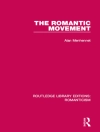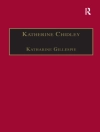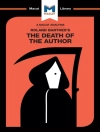Lance Lee knows that Animals, Places and the Past (his past, our pasts) all have a part to play in Becoming Human. The deer’s soft eyes look at him, he thinks of death. In ‘The Light at Vezelay’ he writes of Mary Magdalene. ‘Poker-Faced’, he lied to his father at 12. Read all about it in this splendid new collection. Lance Lee knows what it takes and proves it skillfully in
Becoming Human.
Martin Bax, Editor, Ambit, England’s leading Arts Quarterly; author, The Hospital Ship
Being male and keeping some balance of mind and heart is eloquently explored in Lance Lee’s Becoming Human. ‘The years have planted multitudes in my heart’ he says, and accepting adulthood’s sorrows and corruptions while moving on with one’s life is a continual step-by-small-step act of heroism. It is wonderful to read a poetry that does not fear to feel, nor softens and delays the fierce depths of experience with mere agreeable anecdote or trendy nostalgia. From the child in his crib, to the boy running from the wolf beneath the stairs, from desire’s greed for beauty and solace, to acknowledging the ‘German’ and the ‘Jew’s’ joint contribution to his genetics, Lee’s poems ask that we attend to that continual interior warfare which is the stuff of humanity. With his richly sensuous diction, Lance Lee tackles head on questions of love with all its dignities of aspiration and indignities of the reflective, divided self. This is an honest book, and one of the most passionate documents of the masculine heart around. Our heroic insufficiencies are acknowledged and embraced. This book moves from memory to landscape, into Dante’s mind, across Italy and into Dachau. Becoming Human is a rare book; it takes time to savor and while the poet continually hungers, the poems consistently nourish. This is a book to read time and again; it’s grown-up; it’s real – uncompromising and very beautiful.
Pamela Stewart, The Red Window; Infrequent Mysteries
What immediately draws me into this book is the urgency and honesty with which Lance lee explores the self and its parameters. He writes about childhood when a wolf ‘lived beneath the stairs’ whose ‘breath singed my legs before/I leaped to the safety of the steps, ‘ and of how when waking to terror at night, ‘I learned I was alone/and became human.’ He is deeply aware of family history, his mixed gentile and Jewish background and he examines, often through dream and vision, his attitudes and feelings. He looks unflinchingly at his own feral nature, the bear that’s ‘my familiar stranger’ – a desire to be powerful, destructive, taste pleasure and ‘wild freedom’. There is too an extraordinary empathy with wildlife, a celebration of it, and the questioning of self and God, the spirituality which underlies all this work, is particularly moving in the nature poems. ‘The Wheatfield’ ends:
Joy is not peace or summer’s goldbut this swing between barren and bursting poles
that makes me complete.
The energy of Lee’s writing, its sensuousness and passion is, for me, the true stuff of poetry. He deserves to be much better known.
Nyra Schneider, Insisting on Yellow ? New and Selected Poems; Panic Bird
عن المؤلف
This is Lance Lee’s second volume of poetry after Wrestling With The Angel. He is also a dramatist, Time?s Up & Other Plays, Fox Hound & Huntress; novelist, Second Chances; and noted writer on film, recently with A Poetics for Screenwriters. His poetry is praised in the US and England.
Lance Lee has had a new book just published traditionally by the
University of Texas Press, ‘The Death and Life of Drama’, a sweeping
look at the practice and history of dramatic writing and
screenwriting and their relation to human nature. A book of poems
will appear next year from Birch Brook Press.’












